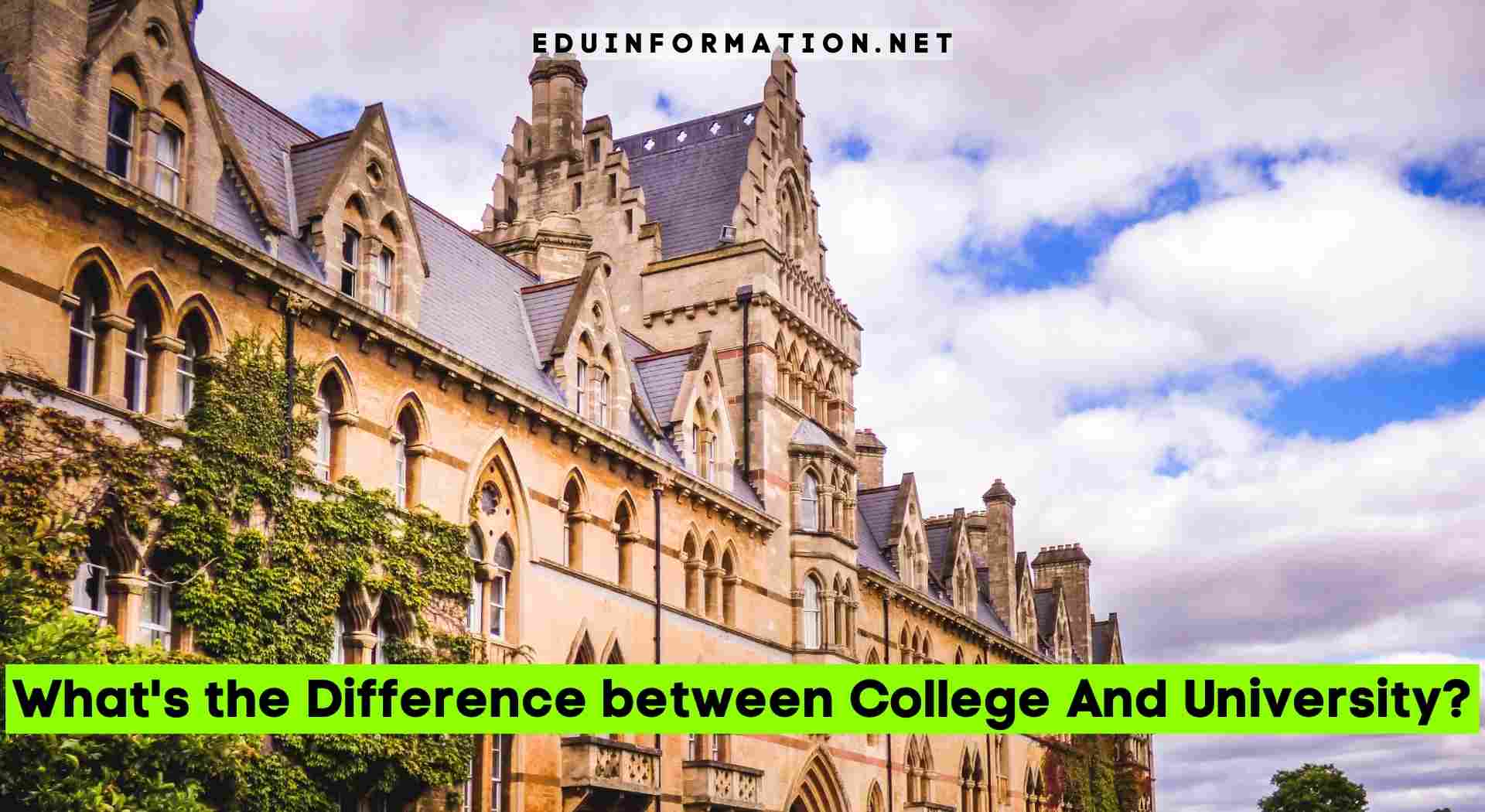The difference between college and university lies in their program offerings and degree types. “University” refers to larger institutions that offer both undergraduate and graduate programs, while “college” refers to community colleges, technical schools, and liberal arts colleges.
Universities tend to have larger campuses, bigger student populations, and a wider variety of courses available, with a stronger focus on research. On the other hand, colleges often have smaller class sizes and may provide a more intimate learning experience with greater interaction between students and professors.
Additionally, while many universities receive public funding, colleges are generally private institutions. Ultimately, the choice between college and university depends on individual preferences and the specific educational goals of the student.
Role of colleges and universities in the education system
Colleges and universities in the United States serve unique purposes within the education system. Understanding their roles can help students make informed decisions about their educational path.

Colleges:
- Colleges are generally smaller institutions that primarily focus on undergraduate education.
- They offer a variety of programs and courses that allow students to explore different fields of study.
- Colleges often provide a more intimate learning environment with smaller class sizes, allowing for increased interaction between students and professors.
- Community colleges, technical schools, and liberal arts colleges are examples of institutions that fall under the category of colleges.
Universities:
- Universities, on the other hand, are larger institutions that offer both undergraduate and graduate programs.
- They have a broader range of academic disciplines and research opportunities.
- Universities often have larger campuses and student populations, providing a more diverse and dynamic learning environment.
- Public and private universities contribute significantly to research and innovation in various fields.
It’s important to note that the terms “college” and “university” can vary in different countries. In the United States, colleges and universities each serve specific roles in the education system, ensuring that students have access to diverse learning experiences and opportunities for academic growth.
Comparison Of Colleges And Universities

Academic Programs and Offerings
When it comes to academic programs and offerings, colleges and universities have significant differences. Colleges typically offer a limited range of programs and degrees, focusing on specific areas such as liberal arts, sciences, or business.
On the other hand, universities provide a broader spectrum of academic options, including undergraduate and graduate programs in various disciplines such as engineering, medicine, law, and more. Universities are known for their comprehensive approach to education, offering a wide array of majors and specializations to cater to diverse student interests and career goals.
Class Sizes and Student-Faculty Ratio
The class sizes and student-faculty ratio vary between colleges and universities. In colleges, class sizes tend to be smaller, providing a more intimate learning environment. Students have the opportunity to engage in meaningful discussions, receive personalized attention, and develop close relationships with their professors. This smaller class size allows students to actively participate in class activities and receive individualized feedback on their academic progress.
On the other hand, universities often have larger class sizes, especially for introductory courses. However, universities also provide additional support through teaching assistants and academic resources to ensure that students receive the necessary guidance and support to succeed.
Student Experience and Campus Life
When it comes to student experience and campus life, both colleges and universities offer unique opportunities. Colleges often have a close-knit community atmosphere, where students can easily connect with their peers and form lasting relationships. Campus life in colleges may involve participation in student clubs, organizations, and events, which contributes to a vibrant social environment.
Universities, on the other hand, provide a more diverse and dynamic campus life experience. With a larger student population, universities offer a wide range of extracurricular activities, cultural events, and sports teams. Students have access to state-of-the-art facilities, including research labs, libraries, and recreational centers, enriching their overall college experience.
Research Opportunities
Universities are renowned for their emphasis on research and innovation. They offer extensive research opportunities for both undergraduate and graduate students. Through research programs, students have the chance to work closely with professors and industry experts, conducting groundbreaking research in their field of interest.
Universities often have dedicated research centers and institutes, providing students with access to cutting-edge technology and resources. While colleges may also have research opportunities available, universities generally have a more extensive network of research collaborations, enabling students to explore diverse research areas and contribute to the advancement of knowledge in their respective fields.
Tuition and Financial Aid Options
Tuition and financial aid options differ between colleges and universities. Generally, universities have higher tuition fees due to their comprehensive academic offerings and larger infrastructure. However, universities often provide a wider range of scholarships, grants, and financial aid packages to support students in managing their costs.
Colleges, on the other hand, may have comparatively lower tuition fees, but their financial aid options may be more limited. It’s essential for students to thoroughly research and explore the available financial aid opportunities provided by both colleges and universities to make informed decisions regarding their education.
Frequently Asked Questions On What the Difference Between College And University
Which Is Better College Or University?
Both college and university are academically equal, but universities offer a wider range of classes and programs, while colleges offer smaller classes and more interaction with professors.
Is Harvard A University Or College?
Harvard is a university, not a college.
Why Go To A College Instead Of A University?
College offers smaller class sizes and more interaction with professors, while universities provide a wider range of classes and programs.
Conclusion
Choosing between a college and a university depends on personal preferences and academic goals. Universities often boast larger campuses, bigger student populations, and a wider variety of courses, with more focus on research. On the other hand, colleges may provide smaller class sizes, more personalized attention from professors, and a closer-knit community.
Furthermore, universities in the United States can receive public funding, while colleges are typically private institutions. Ultimately, whether a college or university is the better choice academically comes down to individual preferences and the specific programs and resources offered by each institution.

